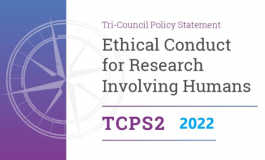
Tri-Council Policy Statement 2: Ethical Conduct for Research Involving Humans (TCPS2) - Chapter 9, 2022, (2018 - archived version)
Chapter 9 of the Tri-Council Policy Statement 2: Ethical Conduct for Research Involving Humans (TCPS2) provides the ethical framework for research involving First Nations, Inuit, and Metis peoples in Canada. This includes important concepts and definitions for research involving First Nations, Inuit and Metis, and key principles for upholding autonomy, self-determination, and governance, ensuring that Indigenous peoples have control and decision-making authority throughout the research process.

National Inuit Strategy on Research, 2018
The Inuit Tapiriit Kanatami National Inuit Strategy on Research outlines best practices for facilitating Inuit Nunangut research that is impactful and meaningful to Inuit in Canada. The policy helps define Inuit expectations for research conducted in Inuit communities and provides a holistic approach to restructuring the research relationships formed with Inuit communities.

Jordan’s Principle, 2016
Aimed at preventing gaps, delays, and denials in access to government services for First Nations children, Jordan’s Principle is a child-first, needs-based principle that applies to all First Nations children. Named in memory of Jordan River Anderson from Norway House Cree Nation, it ensures that First Nations children can access essential services such as speech therapy, educational supports, medical equipment, mental health services, and more, without delay or jurisdictional disputes.
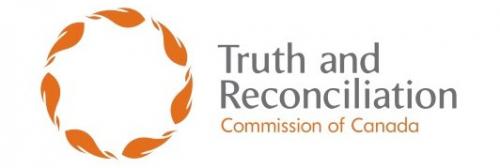
Truth and Reconciliation Commission of Canada: Calls to Action, 2015
The Truth and Reconciliation Commission of Canada: Calls to Action outlines 94 recommendations aimed at advancing the process of Canadian reconciliation. These include calls to all levels of government and educational institutions to both acknowledge the inequities in our systems and work together with Indigenous peoples to identify and close the existing gaps.
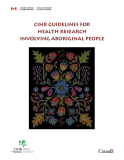
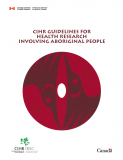
CIHR Guidelines for Health Research Involving Aboriginal People, (archived) 2007-2010
The CIHR Guidelines for Health Research Involving Aboriginal People were prepared to assist research groups conduct research involving Indigenous people that is culturally competent and ethical. The document also outlined a model of a step-by-step procedure for conducting research activities within an Indigenous community.
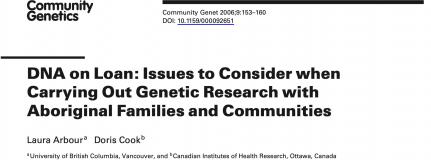
DNA on Loan: Issues to Consider When Carrying Out Genetic Research With Aboriginal Families and Communities, 2006
DNA on Loan: Issues to Consider When Carrying Out Genetic Research With Aboriginal Families and Communities outlines ways in which genetic research with Aboriginal people can be approached while maintaining respectful research relationships. The value of understanding the issues important to Aboriginal communities with regards to genetics research conducted within their communities cannot be understated, and this paper explores these issues as well as best practices to approach them.
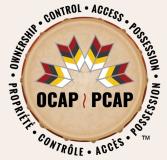
Ownership, Control, Access, and Possession (OCAP®) Principles, 1998
The OCAP principles assert that First Nations’ information will be collected, protected, used, and shared in line with a Nation’s respective traditional knowledge and views. In working with First Nations, it is critical to consider how we interact with First Nations data.